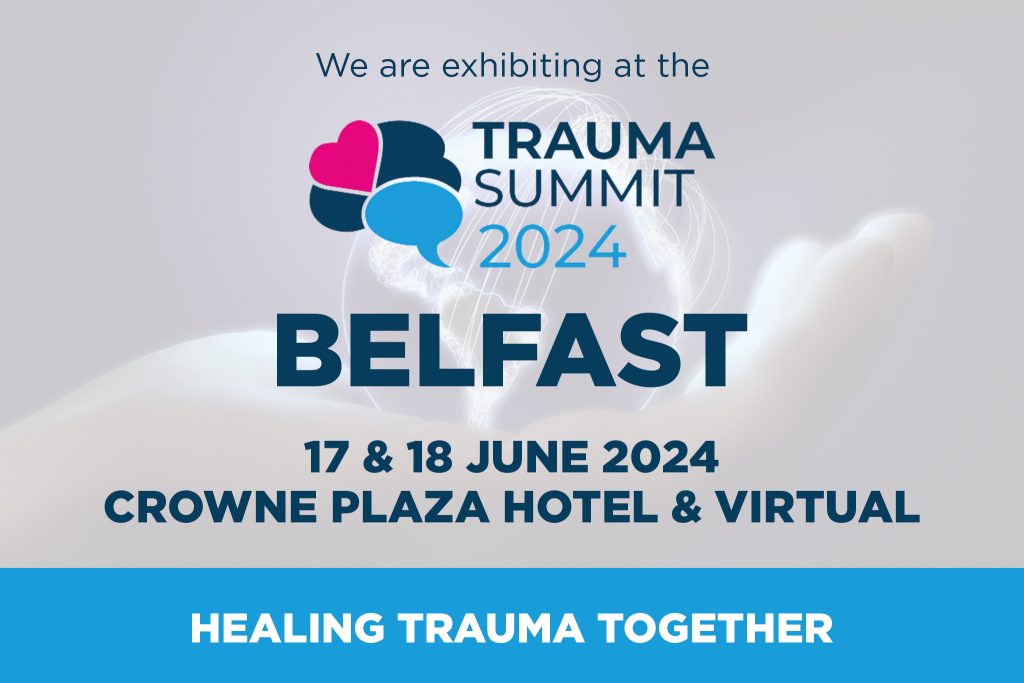
We are looking forward to attending Trauma Summit 2024. At this year’s event, we will have an exhibitor stand and virtual booth where professionals and services can find out more about who we are and what we do.
At Future Pathways, we take a trauma-informed approach across all our work. We are therefore pleased to be able to access Trauma Summit’s diverse and inspiring programme so that our staff can deepen their understanding of psychological trauma and trauma recovery from leading world experts.
By participating as an exhibitor at the Trauma Summit, we can make new connections and share our work with delegates from across a range of services and professional backgrounds. We look forward to highlighting the ways in which our trauma-informed approach is crucial in contributing to positive changes in the lives of people we support.
We are committed to our learning journey. We seek to strengthen our own individual and collective knowledge through events such as Trauma Summit. We are also keen to share our own learning with peers and demonstrate how compassionate, flexible support can make a real difference.
“Future Pathways exists to enable people who experienced childhood abuse or neglect in care to live well, supporting people to achieve their life goals. Many people face significant barriers when services and professionals are not able to offer a trauma-informed response. Each person’s needs are unique, and we are determined to keep learning how we can offer individualised support of the highest quality. By participating in the 2024 Trauma Summit, we can develop our own practice and share our own learning about delivering psychologically informed support.”
– Flora Henderson, Alliance Manager, In Care Survivors Alliance
Attending Trauma Summit 2024? Find us at Stand 2 and discover more about our work.
Delivered by Action Trauma Network, the Trauma Summit takes place in Belfast on 17 and 18 June 2024. Action Trauma is a not-for-profit organisation dedicated to changing lives for the better by promoting awareness of trauma and trauma recovery throughout the world. Discover more about their work at: www.actiontrauma.com/traumasummit
You can find out more about the story of Future Pathways, from our early development to our work up to 2023, in our impact report Stepping Stones. Read more here.
Our latest Quarterly Report is now available to view. It covers our work from January to March 2024. It shows what we’ve learnt, and includes key stats and feedback from those who access Future Pathways.
What happened in Q4
53 people registered with Future Pathways.
14 people started working with a Support Coordinator.
157 people accessed support from 47 Delivery Partners.
Who we worked with
The average age of people who registered with us was 52.
83% of people registered with us live in Scotland’s most populated areas.
How people felt
We received positive feedback from people we support, and we also received suggestions for how we could improve.
People shared that they felt Future Pathwyas understood and cared about them.
People also told us that waiting for support and not being able to access material support can be very difficult.
What people gained
People accessed a mix of different types of support in Q4.
Many people accessed support such as trauma support work and psychological assessment from our Delivery Partners.
And many people accessed support through our Discretionary Fund such as support to make home improvements and explore hobbies.
People also accessed support to link up with existing services such as social work and healthcare.
What changed for people
People shared what changed in their life after accessing support from Future Pathways.
“I went from […] not looking after myself to someone who enjoyed getting up in the morning […] Instead of wasting my life away […] I am able to live a life once again.”
What difference we made
People shared the impact of their work with Future Pathways. For some people, this was lifechanging.
“[Future Pathways] made my life totally on a better path that I never thought possible.”
Our full report features further infographics, feedback and a breakdown of our financial spend. Read our full report here.
We are delighted to share our latest report, Co-designing peer support at Future Pathways. Created in collaboration with Voices for a Better Future, Iriss and Scottish Recovery Network, this report shares what we have learned from our recent co-design project.
In 2023, Future Pathways undertook a project to look at how we might develop peer support. We took a collaborative approach, working alongside people with lived experience who have accessed support from Future Pathways, as well as partners with expertise in co-design and peer support.
At Future Pathways, one of our strategic objectives is to support people to improve their own lives and achieve their personal goals. Through this co-design project, we aimed to explore the peer support and engagement opportunities sought by people who access Future Pathways and identify what these opportunities could look like. This would then give us a strong starting point to develop, explore and test ideas in future.
The project was underpinned by the principles of trauma-informed practice, and we took an appreciative approach which valued individual insights and group contributions. From this foundation, participants took part in a range of activities which uncovered key areas for potential development.

Through the project, we learned that people we support seek opportunities for people with lived experience to learn together, share interests, support each other, influence wider positive change and advocate for themselves and for others. Running throughout these ideas was the importance of creating the space and time to listen and be heard, promote hope and understanding, and generate connection, community and a sense of purpose.
In many ways, the collaborative approach of the co-design group mirrored the very support that people identified as being needed. For example, this project involved creating and taking part in opportunities to share perspective and knowledge, create connection and influence change.
We thank all those who took part in the project. Participants were deeply motivated to contribute meaningfully to developments that would benefit people with lived experience of abuse and neglect. By listening to the voices of people with lived experience and those of our partners and staff, we are all given the opportunity to learn, reflect and improve. We will take time to reflect on what has been shared and what we have learned, and look at how we can use this as the foundation for future activity.

This report has provided a strong starting point for Future Pathways. We recognise that interests and needs are diverse, and we will test options in order to build on what works for people registered with us. We will encourage community and inclusion, and aim to reach as many people as we can through any new activity.
Collaboration is key: we will continue to work together in co-creating projects that meet the needs of people registered with us, and share what we are learning along the way.
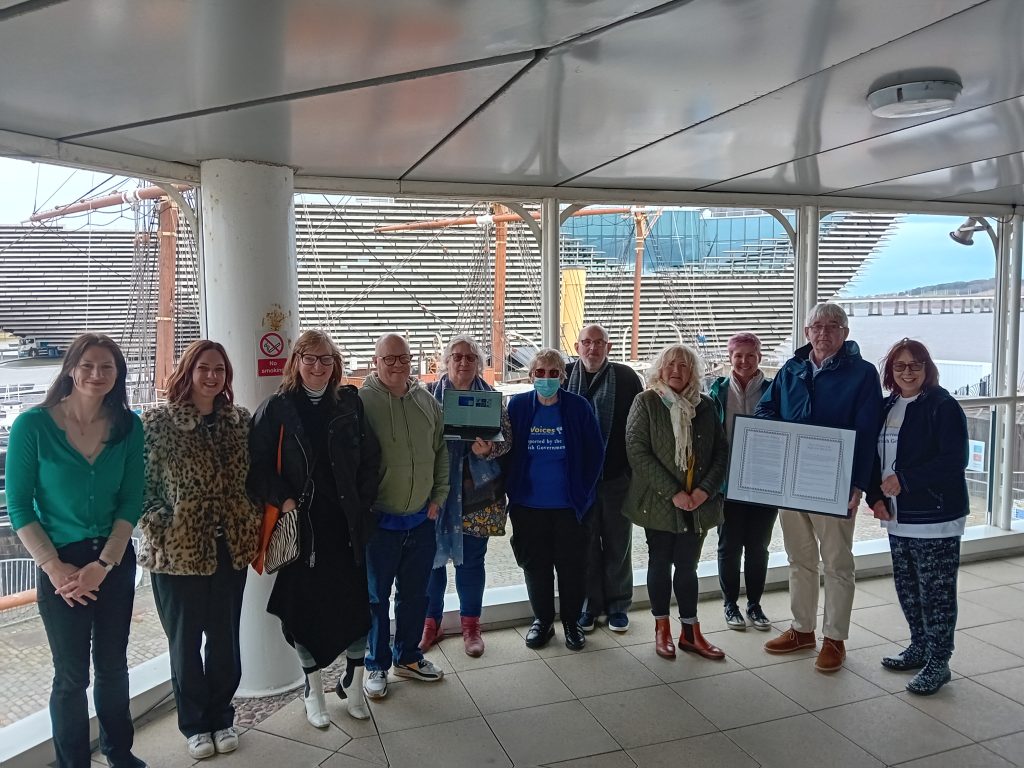
Above: Members of the co-design group at their last meeting in Dundee, 2024
“We were very motivated to take part in this project, because we believe that developing peer support at Future Pathways will make a big difference to people accessing the service. Through this project, we shared our ideas and got to know each other better. We are looking forward to continuing to work together to make sure the needs of people accessing Future Pathways are met.”
– Voices for a Better Future
“It was a real inspiration to work with such motivated colleagues, from both Voices for a Better Future and our partners. We learned a lot about what people felt would be most important in introducing peer support. This year’s plan was a direct result of this co-design process which included people registered with Future Pathways, staff, the Scottish Recovery Network and led by Iriss. It is hugely exciting to start work in this area and even more exciting to do so in ongoing partnership with Voices for a Better Future.’’
– Flora Henderson, Manager, In Care Survivors Alliance
‘Scottish Recovery Network values this opportunity to work with Future Pathways, Voices for a Better Future and Iriss to explore peer support and how it can be developed in Future Pathways. This collaboration meant that we could share our lived and learned experiences and bring a range of perspectives together to look at things in new ways. It may have been the start of a longer process but it has been one full of learning and potential.’
– Louise Christie, Director, Scottish Recovery Network
‘This project shows the importance of people having an active role in their own recovery and working alongside others connected by similar experiences. It was an inspirational experience to work with the Voices group who expressed a strong desire to make a difference to future generations. We are delighted that our partners Future Pathways and Scottish Recovery Network, are taking forward ideas from the co-design work and are passionate and committed to peer support for those accessing Future Pathways.’
– Ellen Daly and Kerry Musselbrook, Development Leads, Iriss

We are delighted to share the news that Voices for a Better Future has now been working together for two years.
The group was set up 25 May 2022 and since then, they have gone from strength to strength. They have met online and in-person to work on some interesting and inspirational projects.
Voices for a Better Future is a lived experience voice group. The group is made up of people who have accessed support from Future Pathways. It is a safe space where people can draw on their lived experience to offer guidance to the Leadership Team at Future Pathways.
Over the past two years, the group have taken part in many projects.
- They have given updates via the Future Pathways newsletter to share their work with other people supported by Future Pathways.
- They worked with Iriss and Scottish Recovery Network on a project about co-designing peer support.
- Some members of the group are working with the Procurator Fiscal’s office. They aim to improve processes for people who take part in the National Abuse Inquiry or who are involved in court cases against perpetrators.
- Two members of the group have taken up roles as Alliance Leadership Team representatives.
- The group is working on record search guidance. They want to help people who are trying to find records from their time in care. The group is using their own personal experience to help others.
To mark their two year anniversary as a group, we asked members to share their feelings about the group:
“One thing we have in common is when one of the group is missing we all make sure that person is okay.”
“I myself want one thing – to make sure that sure that the work we are doing will help and benefit people from past, present and future.”
“I would like to use a quote from Helen Keller who said: ‘Alone we can do so little; Together we can do so much.’ This sums up Voices for a Better Future group for me.”
Future updates around current projects the group are working on will be shared via Future Pathways’ newsletter and their dedicated space on the website. You can view this here.
There are currently 13 active members in the group. Membership of the group changes each year to give new people the chance to take part. If you are interested in joining, you can:
- Let your Support Coordinator know if you are interested
- Email Future Pathways at engagement@future-pathways.co.uk
As the group is quite small, it may not always be possible for everyone to join at the same time.
This information was updated January 2025.
A lot of people register with us for support. Because of the number of people registered, it is not possible for us to work with everyone at the same time. This means that, for now, people are waiting longer than we would like for their support to start.
We understand that waiting for support can be difficult. We are working hard to make sure you can access the service as soon as possible.
Can you tell me how long I will have to wait for support to start?
It is not always possible for us to say how long people will have to wait. This is because timeframes can change. However, at the moment, people are waiting up to 26 months.
We know it can be hard to wait a long time for support. We still hope that you register with us. We will start your support as soon as we can.
I was told that it was not possible to say how long I would be waiting for support. Why was this?
Before now, we did not give people a timeframe for when support would start. This was because our timeframes can change. We wanted to prevent people feeling let down if the waiting time ended up being longer than what we had told them. However, feedback from people registered with us told us that it was important to have information about when support might start, even if that information might change.
The waiting time may still go up or down. We will be checking it every month and will update this page on our website if anything changes.
Can I get any other support from Future Pathways while I wait?
Yes. There is some specific support you can get while you are on the waitlist. You can find out more about this here.
Are some people able to get support before others?
Older adults (people 65 and over) and people living with a terminal illness have priority when accessing support from Future Pathways. For everyone else, we offer support in the order that they registered with us.
How will I know if I am registered?
Once you have registered with us, we will send you an Information Pack within 2 weeks. The pack will confirm that you have been registered. It will also give you more information about Future Pathways and how we work.
The Information Pack will also include a Support Agreement. It is important you sign the Support Agreement and send it back to us.
A copy of the Information Pack is also on our website. You can view it at:
How can I connect with Future Pathways while I wait for support?
You can stay connected with us through our newsletter, Facebook and X/Twitter where we share updates about the service, plus features and articles. Any events we may be having will also be shared through our newsletter and social media.
Where can I find out more information about Future Pathways?
Our FAQs (Frequently Asked Questions) answer a range of different questions about the service. You can view the FAQs at www.future-pathways.co.uk/faqs
Can I give feedback about Future Pathways?
Yes. You can give us feedback at any time by completing the feedback form on our website: www.future-pathways.co.uk/feedback
If you would like to get a copy of the feedback form by post instead, you can let us know by:
- emailing engagement@future-pathways.co.uk
- writing to us at Future Pathways, 40 Shandwick Place, Edinburgh EH2 4RT
- calling our Registration Line on 0808 164 2005
FURTHER HELP
Your GP and NHS services
During normal working hours always contact your GP for urgent advice and treatment.
When your GP or Dental Practice is closed and you cannot wait until they are open, you should phone NHS 111 service for out-of-hours advice. The service provides urgent care advice and mental health support.
Call 999 or go to A&E now if you do not feel you can keep yourself or someone else safe.
The Samaritans
The Samaritans offer a safe place for you to talk any time you like. You can talk in your own way about whatever is going on. They have a helpline, email service, letter service and a self-help app. Helpline open 24 hours a day, 365 days a year.
Phone for free 116123
Breathing Space
Breathing Space is a free phone and webchat service. It is confidential. It is for anyone in Scotland over the age of 16. You can contact them if you are experiencing low mood, depression or anxiety. Open 6pm to 2am Monday to Thursday, and 6pm to 6am Friday to Sunday.
Phone for free 0800 83 85 87
Shout
Shout is a free, confidential, 24/7 text messaging support service for anyone who is struggling to cope.
Text SHOUT to 85258
Our latest Quarterly Report is now available to view. It covers our work from October to December 2023. It shows what we’ve learnt, and includes key stats and feedback from those who access Future Pathways.
What happened in Q3
67 people registered with Future Pathways.
28 people started working with a Support Coordinator.
109 people accessed support from 37 Delivery Partners.
Who we worked with
The average age of people who registered with us was 43.
57% of people registered with us live in Scotland’s most populated areas.
We continue to find that people we support are more likely to live in deprived areas.
How people felt
Most of the feedback we received from people registered with us was positive.
People shared that they felt Future Pathways understood and cared about them.
People also told us that not being able to access material support sometimes can be difficult.
What people gained
Many people told us that counselling, and support to improve their home environment, makes a big difference. Here, John tells us what he gained from accessing mental health support from Future Pathways:
“Before I accessed this support, I didn’t know why I couldn’t function. They helped me figure it out for myself. And I am still figuring it out. But now, I am on that journey.”
What changed for people
People shared what changed in their life after accessing support from Future Pathways.
“My Support Coordinator made a colossal difference in my life.. [Future Pathways] has helped fund a number of programmes which have helped ease my depression and physical ailments.”
What difference we made
People shared the impact of their work with Future Pathways. For some people, this was lifechanging.
“It was night and day compared to with what my life was like […] Future Pathways helped me turn my life around. I started caring about myself, because someone else was caring about me.”
Our full report features further infographics, feedback and a breakdown of our financial spend. Read the full report.
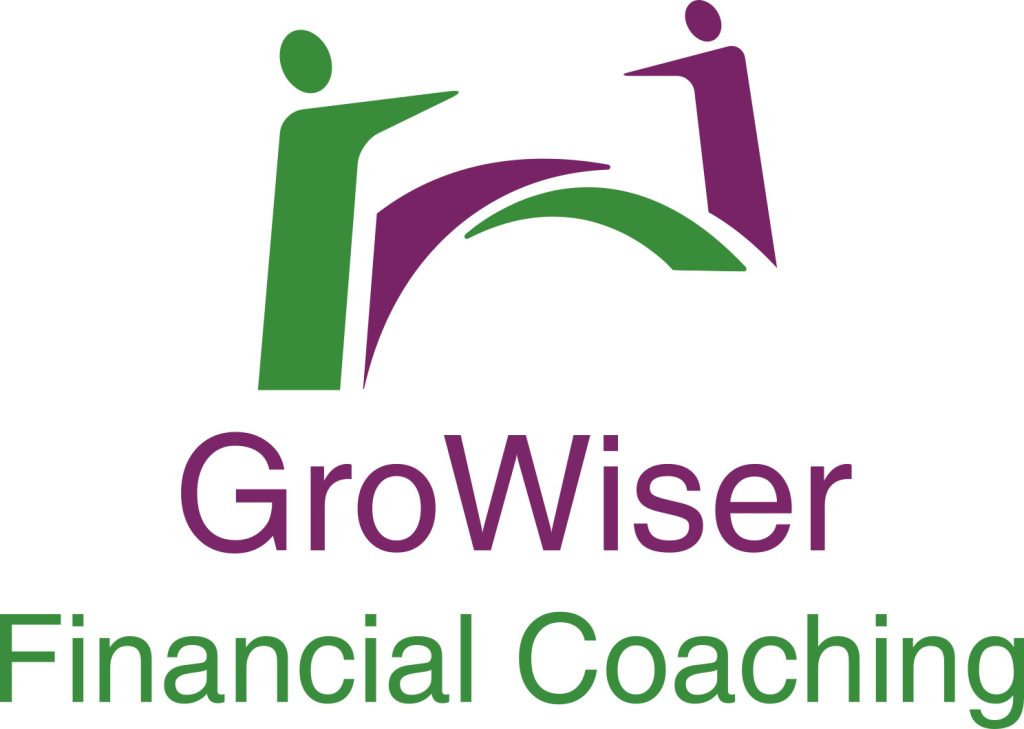
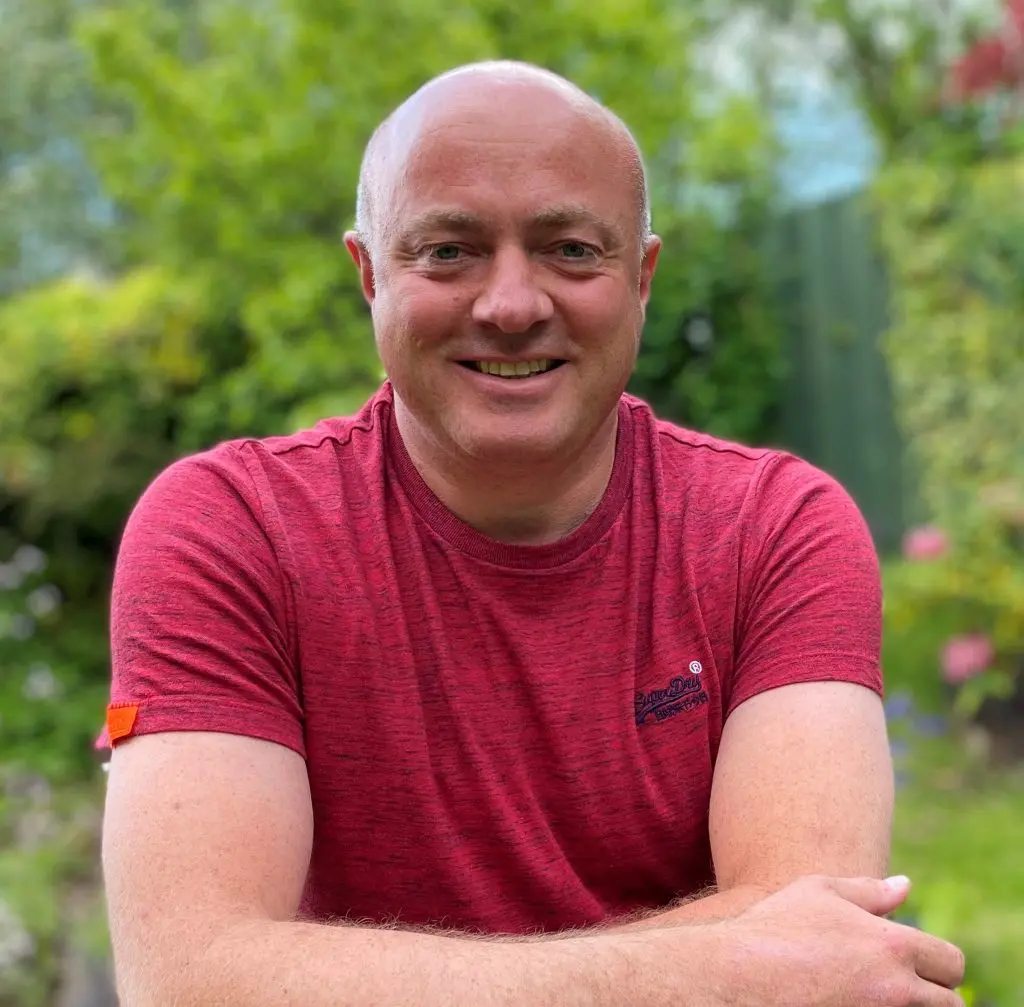
At Future Pathways we work with many different services that help the people we work with in many different ways. One of these services is GroWiser Financial Coaching, run by Graham Wells. Graham helps people to learn new habits to help them look after their money.
Graham Wells is a financial coach. Financial coaching is about helping people to change their feelings or thoughts about money.
Graham says: “Often when people seek support, they worry that they will come across as being stupid. But it is not about telling people what they have done wrong or telling them what they should do differently.” Instead, Graham explains, it is about helping them to look after their money in a better way.
There are two sides to what Graham does.
One side is helping people learn more about how money works. This might be things like how to build an emergency fund or how to keep track of money. He helps people to work out what is important. And this helps people to develop better money habits.
The other side of what Graham does is helping people to change the way they behave in relation to money. Sometimes Graham gives people tasks. For example, making lists of where their money comes from and where it goes.
People can feel much better when they have control of their money.
Graham’s 5 steps
Graham’s 5 steps for looking after your money.
Think about how you spend.
Spend your time and money in line with your values and what is important to you. Do not forget your future self.
Get rid of your debt.
Find the best way for using and repaying debt. Know the difference between ‘good’ and ‘bad’ debt.
Keep your loved ones in mind.
Prepare for things you do not expect. Build peace of mind for you and your loved ones
Nurture your wealth.
‘Wealthy’ and ‘rich’ are not the same. Wealth means looking after your whole life, not just your money.
Create your future.
Make a plan for how you would like to spend your time as you get older. Do not leave it to others to define your life path.
Here is a letter we received from Sandy, who was supported by Future Pathways. He felt the service was there for him, and has now chosen to end his support. He wanted to share his experience of what support has meant to him.
Please note: this text mentions physical and mental abuse.
I was one of the first ones in the door at Future Pathways. I recall meeting the team, and I had been given Garry as my Support Coordinator. I remember getting a cup of tea with both Garry and Flora. Because of the mental and physical brutality I was exposed to in the secure units, I had developed an underlying diagnosis of severe Complex PTSD. Thanks to Garry and Future Pathways I was able to access counselling to discuss this and come to terms with it.
I felt that the phone was always on when I needed the service, they were always just a call away.
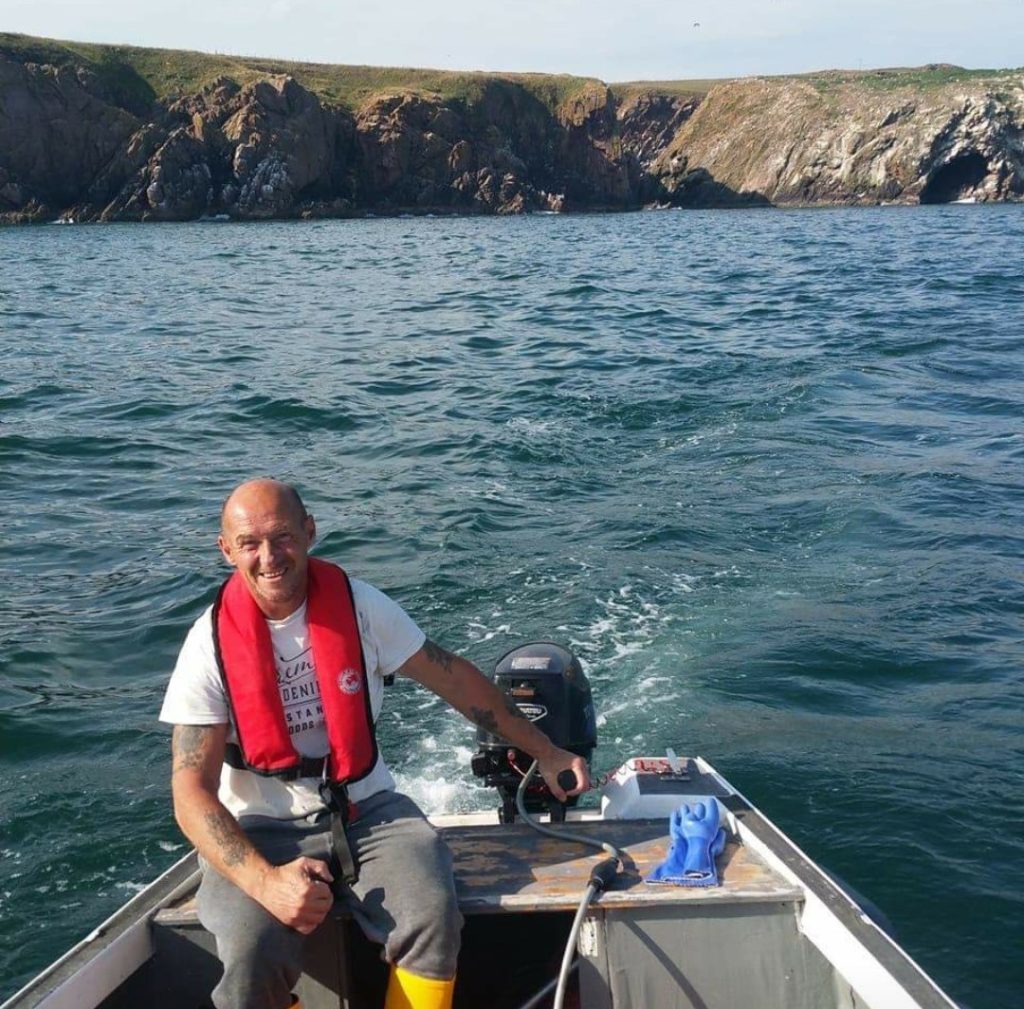
As each year progressed, I felt I was getting better and better, the support from Future Pathways helped me in so many various ways. It helped me trust institutions again which I would never have thought possible due to my past.
Now I have reached a point with my Support Coordinator here today, I feel it is now the time to break away from the service. I want to thank you all for the support through a number of challenges, from my physical health decline to help accessing counselling and other supports for my mental wellbeing.
I can’t believe how much I have moved on from being an angry person to the polar opposite. I now feel like each day I am becoming more and more positive. My Spina Bifida could very well be the result of the physical beatings I received in my youth – but again Future Pathways got me in touch with a clinic in Edinburgh which helped with the diagnosis of this. As a result, this allowed for me to prepare and begin to manage my life accordingly.
I mean this with complete sincerity, I don’t think I would have been here now if it was not for Future Pathways. Now it is my time to move on and let someone else get the support which I have been so thankful for.
All the best,
Sandy Sutherland
Roberto shares his photographs with us. Here are his outdoor trips to great locations.
Future Pathways supported Roberto in his goal to have more time out of his busy life. He had thought about his needs and knew that he had a passion for time outdoors. He was keen to make sure he could still go biking and camping in the winter months. This freedom would help his mental health.
But, he knew he did not have the right equipment. So, Future Pathways supported Roberto to get a new tent. This means he can now take time out anytime during the year, even if it is cold. This has helped to boost Roberto’s mental health.
Roberto completes his trips with a good friend. This gives him time to talk with someone who understands him and it allows their friendship to grow. They especially like visiting Orrin Dam and Lochan Fada.
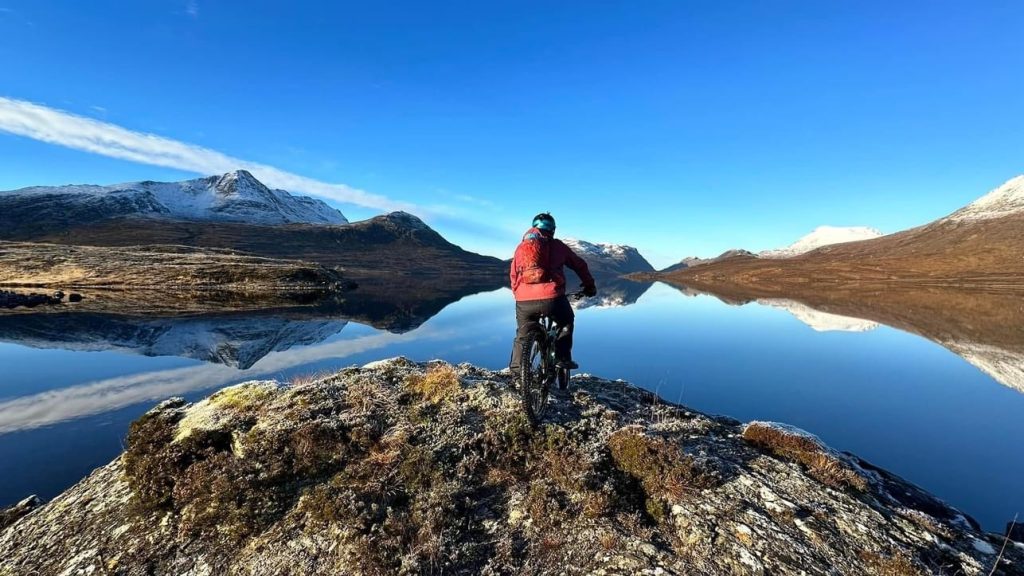
Above: Lochin Fada
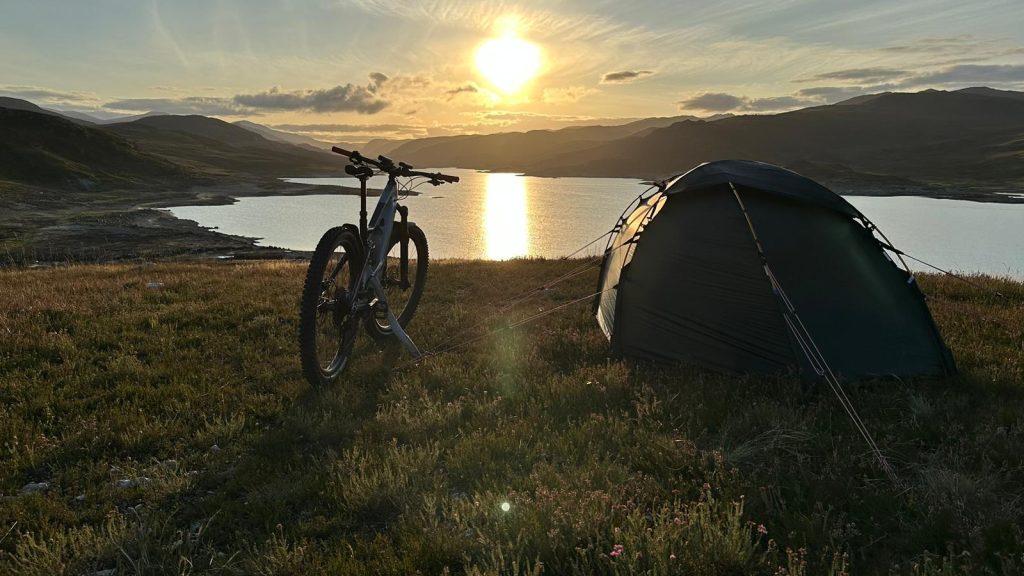
Above: Orrin Dam
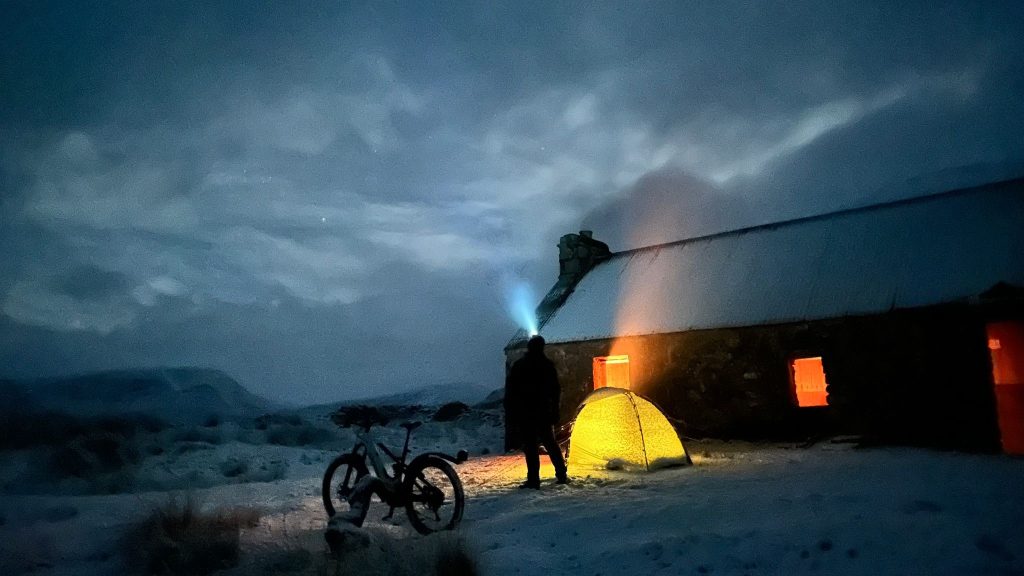
Above: Loch Vaich
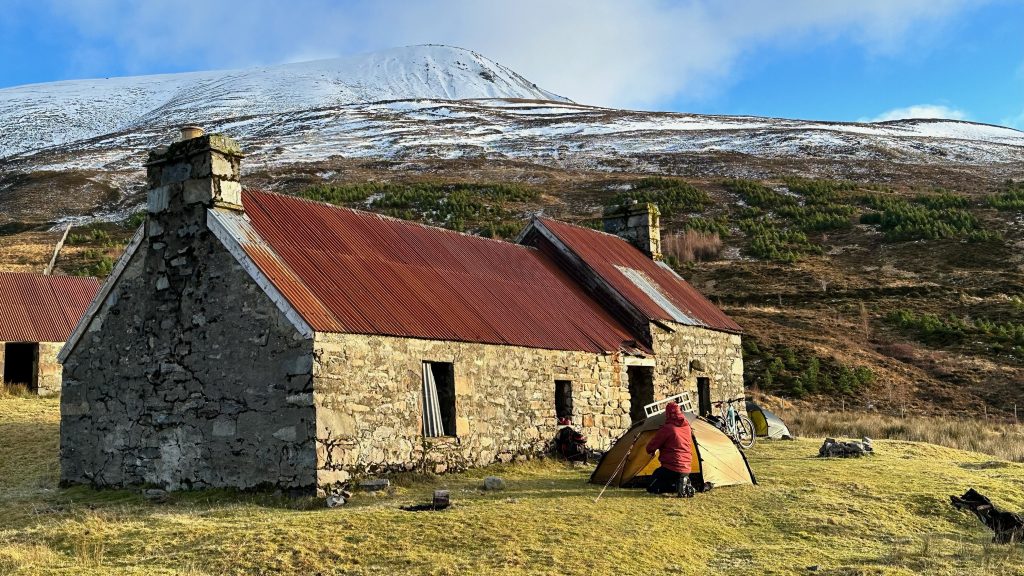
Above: Loch Vaich
Trevor, one of the people we support, would like to share his book with you. It is called ‘Knocking on the Wall’.
Future Pathways supported Trevor to write his book in 2019. In the book, Trevor describes the different times of his life. He writes about the time with his family and also his life after leaving care. The book includes his time as a child in care homes.
Trevor wanted to share his own record of his time in care. And he wanted to explain the impact it had on his life. Trevor talks in his book about his experiences, thoughts and feelings.

It was important for Trevor to write his book. It gave him the chance to get his thoughts down on paper. He also wanted to make sure other people knew his story and he thought it might help them too.
The book includes some of Trevor’s poems. We have included two of them below.
If you would like a copy of Trevor’s book for free, he is happy to share it over email. You can ask for a copy by emailing Trevor at t.swistchew65@gmail.com or by emailing Future Pathways at engagement@future-pathways.co.uk.
Please note that the book does mention some instances of abuse.
LISTEN
Listen –
When it is dark
The sun is shining
When it is light
The sun is shining –
Always.
FREEDOM?
It is not bars a prison makes
It is what is in your head.
For each constructs within the mind
Their walls and locks and chains.
If you can look just for a while
At the views that you believe
You will start to see it is yourself
Whom you yourself deceive.
Freedom in the true sense
Is the end of all self-illusion.
Walk in love – harm no one.
